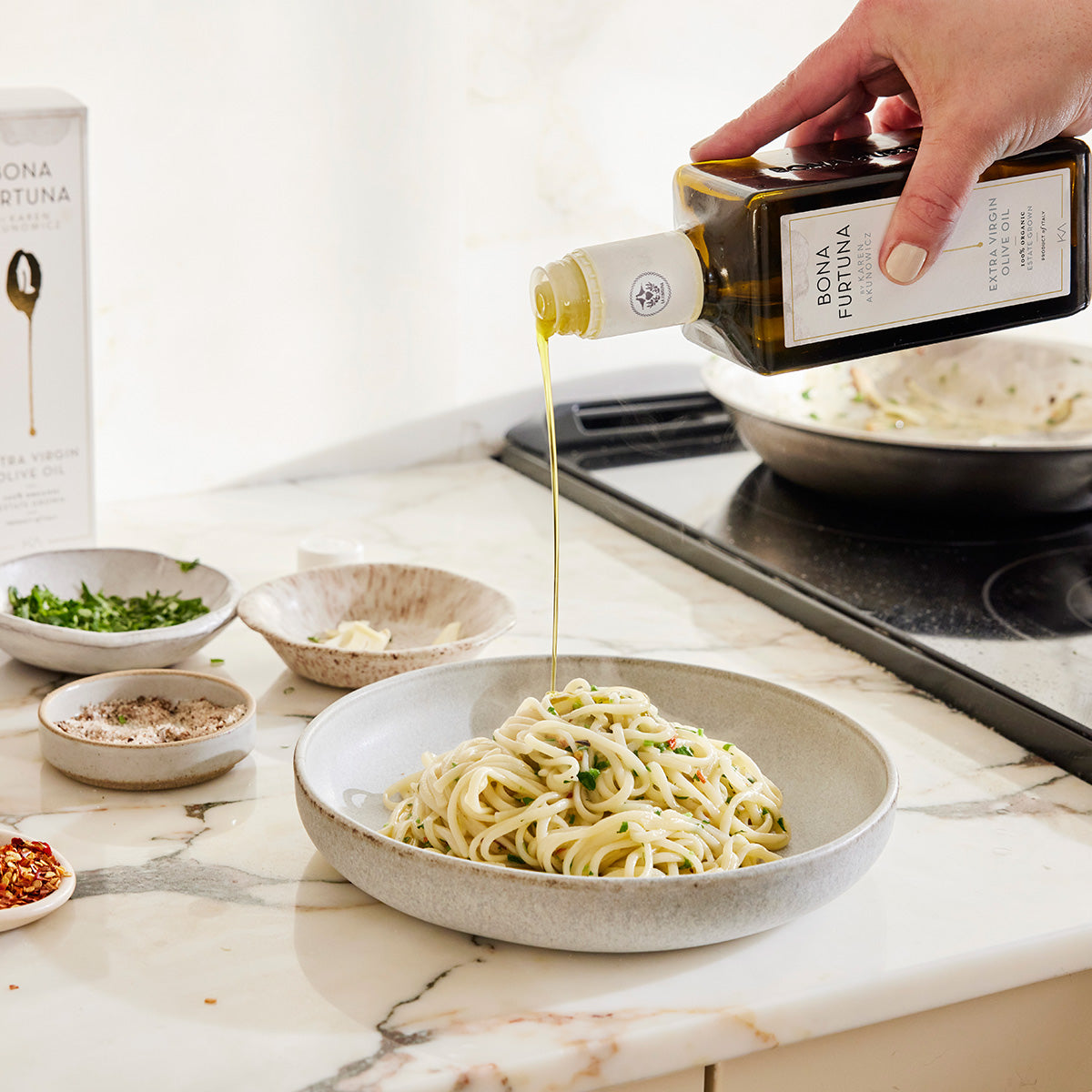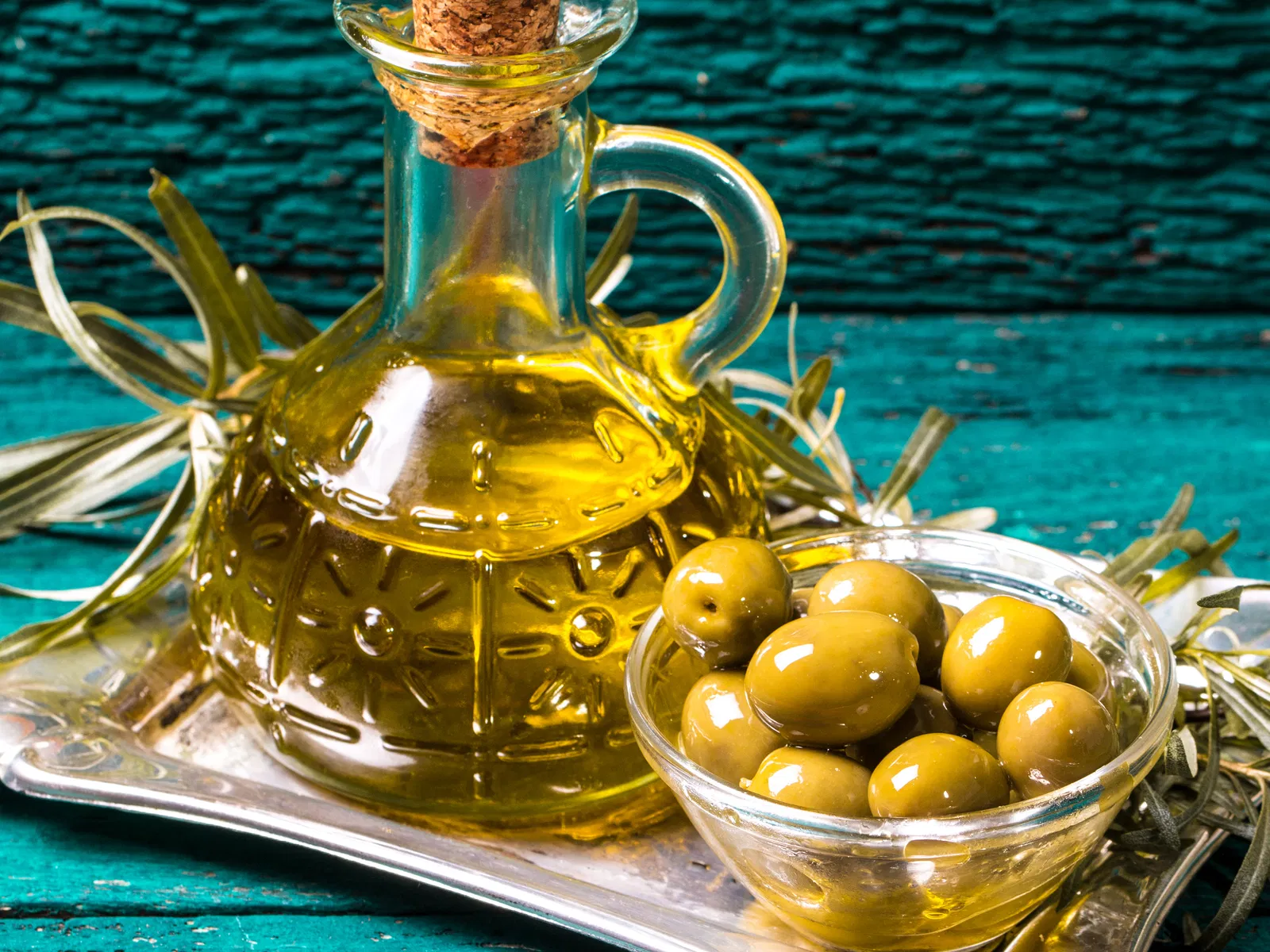Extra Virgin Olive Oil Benefits: How It Helps to Regulate Blood Sugar
Exploring the Different Sorts Of Olive Oil and Their Usages, Including Extra Virgin Olive Oil
The expedition of olive oil includes a varied series of types, each offering distinct tastes and culinary applications. Bonus virgin olive oil, renowned for its premium quality and wellness benefits, offers as a staple in lots of kitchen areas, yet it is just one element of this diverse ingredient. extra virgin olive oil benefits. Various other varieties, such as polished and pure olive oils, also necessitate interest for their one-of-a-kind buildings and uses. Recognizing these differences can substantially impact both food preparation techniques and flavor accounts. What, then, should one think about when selecting the ideal olive oil for a specific culinary undertaking?
What Is Olive Oil?
Stemmed from the fruit of the olive tree, olive oil is a staple in Mediterranean food and a vital component in numerous culinary applications. This versatile oil is produced by pressing whole olives, leading to a liquid that differs in fragrance, color, and flavor depending upon the kind of olives utilized, the area of growing, and the removal procedure. Olive oil is mostly made up of monounsaturated fats, specifically oleic acid, which is recognized for its potential health benefits, including anti-inflammatory buildings and cardio assistance.
Along with its cooking uses, olive oil has a long history of application in conventional medicine and skincare, owing to its rich antioxidant content (extra virgin olive oil benefits). The oil is frequently utilized in dressings, marinates, and for cooking techniques such as sautéing and roasting. Its unique flavor account can boost the preference of numerous recipes, making it a crucial active ingredient for both home chefs and expert chefs
In addition, olive oil is celebrated for its duty in the Mediterranean diet regimen, which is connected with many health benefits. As recognition of these benefits grows, olive oil remains to gain appeal worldwide as an essential component of a healthy and balanced way of living.
Kinds of Olive Oil
Understanding the different sorts of olive oil is crucial for both culinary enthusiasts and health-conscious consumers. Olive oil is classified largely based on its extraction approach and high quality, which significantly impacts its flavor, scent, and wellness advantages.

Light olive oil, regardless of its name, refers to a lighter flavor and not lower calories. It is excellent for those looking for a much more subtle preference in marinades and dressings. In addition, there are flavorful olive oils infused with natural herbs, flavors, or citrus, which can enhance recipes without the requirement for added flavoring.
Each kind of olive oil serves certain culinary objectives, and recognizing these differences allows consumers to make educated choices that straighten with their cooking designs and health and wellness objectives.
Bonus Virgin Olive Oil
Additional virgin olive oil (EVOO) is widely considered as the greatest quality olive oil offered, celebrated for its abundant taste and countless health and wellness benefits. To be categorized as added virgin, the oil needs to be generated from fresh olives utilizing mechanical procedures, without using solvents or excessive warmth. This meticulous technique preserves the oil's natural tastes, antioxidants, and healthy fats, resulting in a product with a reduced acidity level of much less than 0.8%.
EVOO is bountiful in monounsaturated fats, especially oleic acid, which is connected to decreased inflammation and boosted heart health. It likewise has polyphenols, powerful antioxidants that may offer protective impacts versus persistent diseases. The flavor account of EVOO can differ dramatically depending upon the olive range and area of manufacturing, ranging from grassy and fruity to durable and peppery.

Culinary Utilizes of Olive Oil

In cooking, olive oil can be made use of for sautéing, toasting, and cooking, supplying a much healthier option to butter or other fats. Its high smoke point makes it ideal for numerous cooking approaches, while its anti-oxidants add to a heart-healthy diet plan. Drizzling olive oil over finished recipes, such as pasta, fish, or smoked vegetables, can elevate tastes and add a touch of beauty.
Moreover, olive oil plays a significant duty in cooking, where it can replace traditional fats in dishes for bread and pastries, imparting moisture Source and a subtle preference. It likewise works as a base for instilled oils, enabling cooks to trying out flavors such as garlic, herbs, or chili, even more expanding its cooking capacity. Overall, olive oil's convenience makes it vital in both home and expert kitchens.
Deciding On Quality Olive Oil
When picking top quality olive oil, it's important to consider a number of essential variables that influence the item's flavor, fragrance, and wellness benefits. Opt for additional virgin olive oil (EVOO), which is obtained from the initial chilly pushing of olives and contains the greatest degrees of anti-oxidants and advantageous substances. Seek oils that are certified by acknowledged companies, as this frequently makes sure adherence to rigorous quality standards.
The packaging likewise plays a substantial duty in preserving the oil's stability. Select oils saved in dark glass containers or tins to protect against light degradation. Take notice of the harvest date; fresher oils use premium taste and dietary value, so select products that are within 18 months of their harvest.
On top of that, consider the origin of the oil. Premium olive oils typically come from certain regions understood for their unique taste profiles, such as Italian, Spanish, or Greek oils. Lastly, recognize the taste; a high quality olive oil ought to have a balance of fruity, bitter, and peppery notes, showing official source its richness and intricacy. By examining these aspects, you can ensure you are choosing the very best olive oil for your cooking needs.
Conclusion
In recap, the exploration of various kinds of olive oil exposes distinct characteristics and applications, with added virgin olive oil representing the pinnacle of top quality because of its low acidity and high antioxidant content. Its convenience in culinary usages improves flavors in dressings, marinates, and drizzles. Recognizing the different ranges of olive oil enables for educated options in cooking techniques, promoting much healthier practices while enhancing the overall gastronomic experience. Quality choice stays important for optimum benefits.
Obtained from the fruit of the olive tree, olive oil is a staple in Mediterranean food and a key component in different culinary applications.The most common kinds of olive oil consist of improved olive oil, pure olive oil, and light olive oil.Extra virgin olive oil (EVOO) is commonly pertained to as the highest high quality olive oil offered, renowned for its abundant taste and numerous health and wellness advantages. Decide for added virgin olive oil (EVOO), which is derived from the first cold pressing of olives and contains the highest levels of antioxidants and helpful substances.In recap, the expedition of various kinds of olive oil reveals distinct features and applications, with extra virgin olive oil representing the pinnacle of quality due to its low level of acidity and high antioxidant content.